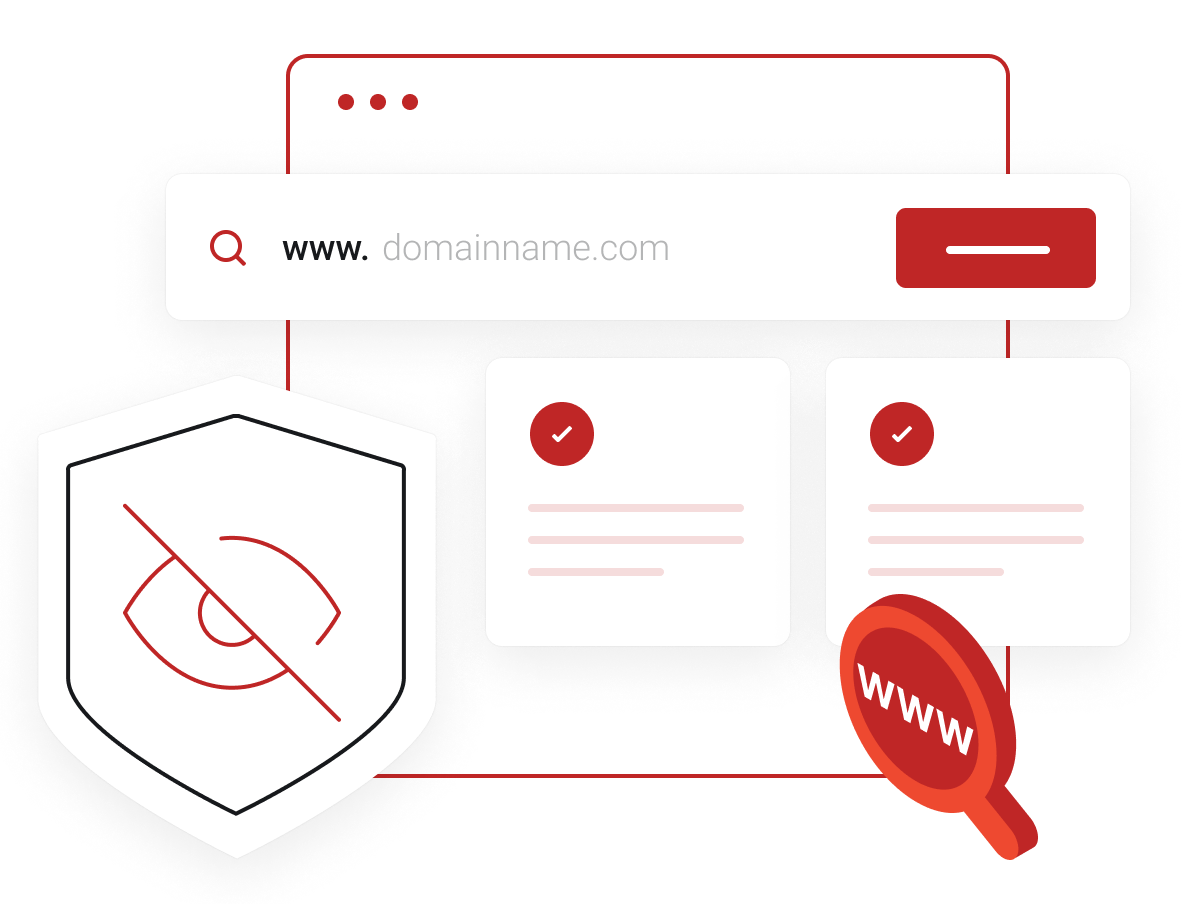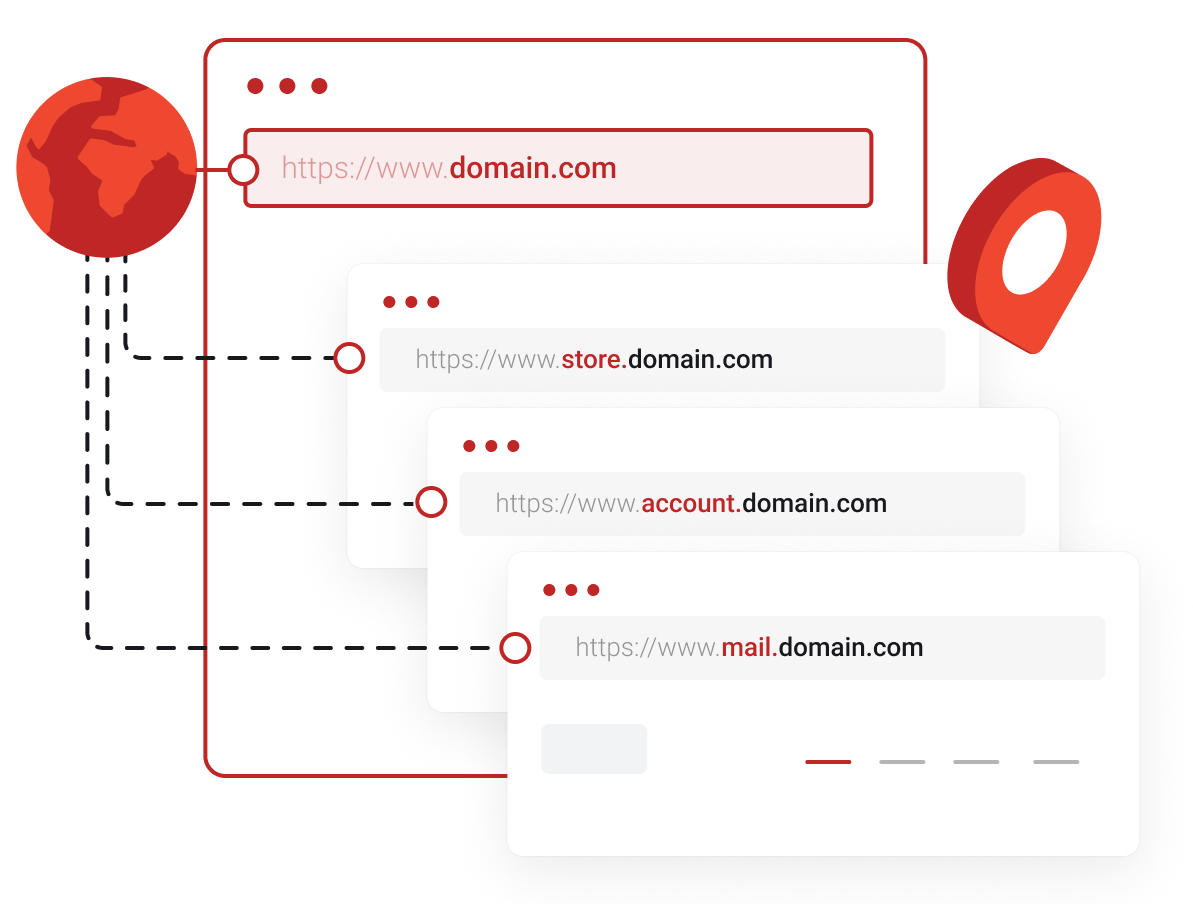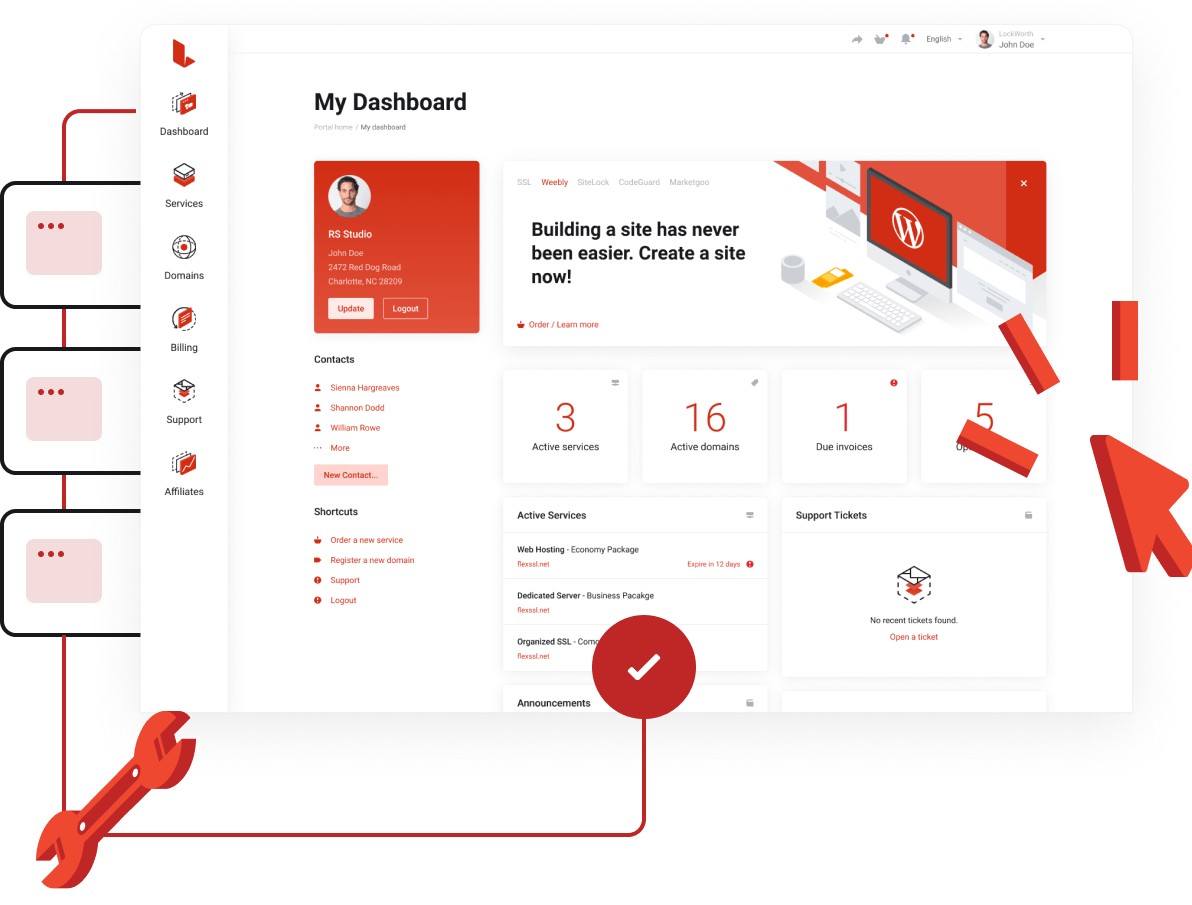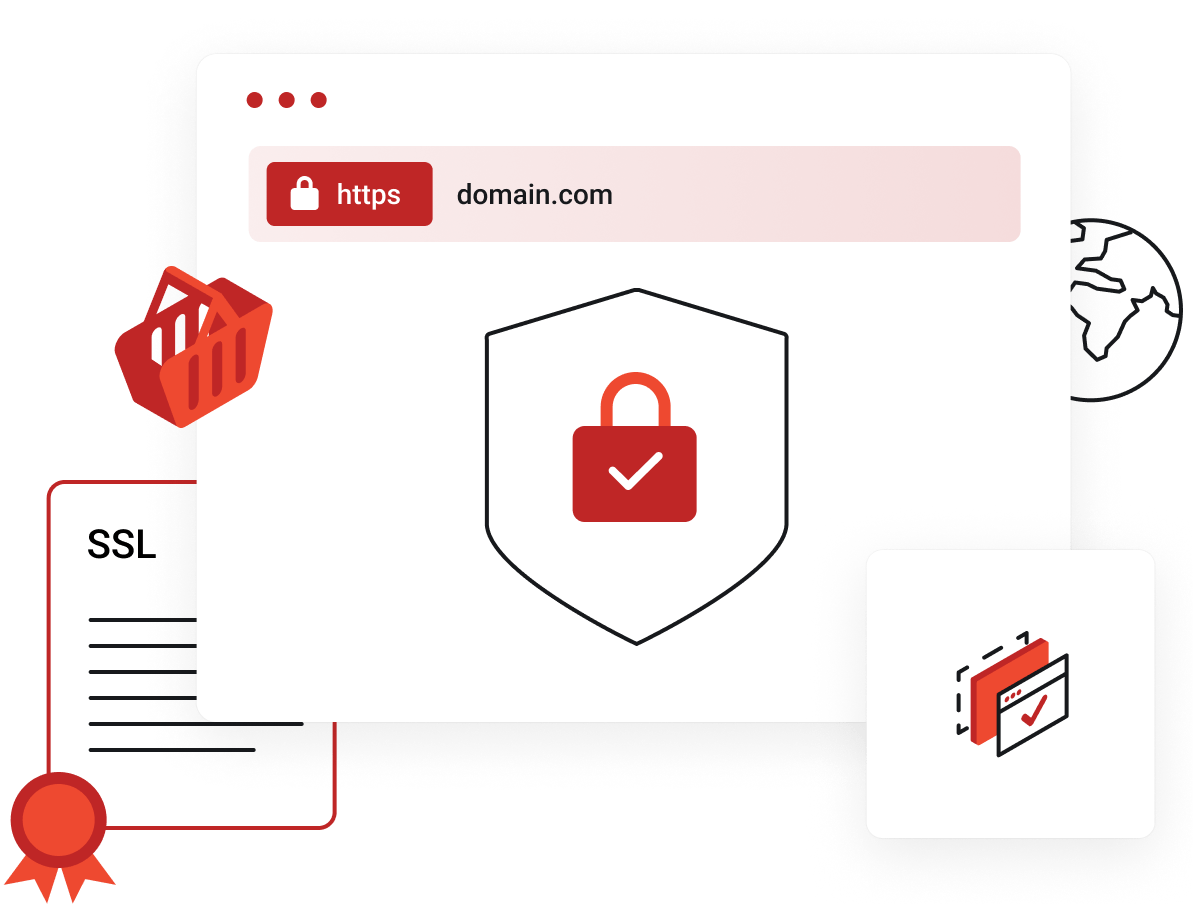Get 10% Off Any Period Domain Registration
SSL Certificates provide encryption for data transmitted over the internet, ensuring secure communication between a web server and a browser. With SSL in place, your website can operate using the HTTPS protocol, displaying a padlock icon in users' browsers to indicate a secure connection.
Not mentioning increased security, there are other benefits like SEO ranking. Google aims to enhance web security, which involves ensuring that sites accessed through its search engine are safe. As a result, websites with SSL certificates tend to enjoy improved rankings in search results.
| TLD | Register | Renewal | Transfer |
|---|
yourbusiness.com. It acts as your online identity and is essential for establishing a web presence.
Transferring a domain involves moving it from one registrar to another. Here's a step-by-step overview of the process:
Unlock Your Domain: Log in to your current domain registrar and unlock the domain you wish to transfer. Domains are often locked to prevent unauthorized transfers.
Obtain an Authorization Code (EPP Code): This is a security code provided by your current registrar. You'll need this code to initiate the transfer with the new registrar.
Initiate the Transfer: Log in to your new registrar's platform and start the domain transfer process. You'll need to enter your domain name and the authorization code.
Verify the Transfer: You'll typically receive an email from both your old and new registrar to confirm the transfer. Approve the transfer request.
Wait for Completion: Transfers can take anywhere from a few hours to several days to complete, depending on the registrars involved.
After the transfer is complete, your domain will be managed by the new registrar. Make sure you update any DNS settings or services associated with your domain if necessary.
Buying a domain involves securing a unique web address (like www.yourbusiness.com) that identifies your website on the internet. This process grants you the rights to that name for a specified period, typically one year, and requires renewal.
On the other hand, buying web hosting provides the necessary server space and technology to store your website’s files, making them accessible to visitors. Hosting ensures that your website can be viewed online, whereas a domain name simply serves as the address for your site. Both services are essential for a functioning website, but they fulfill different roles in establishing your online presence.






